Cheetos-flavored Mac n cheese.
My daughter slips this Frankenstein invention into my grocery cart. I give her a grossed-out face and say, “ewww.” But it’s probably delicious because scientists and flavor wizards created it in a lab.
Years ago, I read an article about the engineering of Doritos and other processed foods. I felt manipulated but validated. It’s not my fault when I sit down to watch the Office for the 25th time and smash an entire bag of chips. The scientists made me do it.
My brain and body were not built to regulate these fake foods. The combination of fat, salt, MSG, crispiness, and something called “vanishing caloric density” overwhelm my inhibitions.
The food is artificial and made to keep me hooked. But food is not the only thing.
Devices are Doritos 10x (AKA Crack)
My middle kid turns into a crack addict with an iPad (not that I would know about being addicted to crack, but I’ve watched a lot of TV.) Once he gets a hit, he’ll do anything to continue. So, we have to cut him off and limit the use.
But it’s hard. We got out to eat with fantasies of enjoying a delightful meal and 15 minutes in, one of my kids throws tortilla chips at the server and I desperately pull out a screen. No judgement with kids and screens.
But you can’t argue with the addictiveness. The more buttons they push and hyper-energetic shows they watch, the more addicted they get. And it’s not great for their brain or their development.
Obviously, it’s not just kids, it’s us too. TikTok, Instagram, YouTube, Candy crush….all these things are engineered to keep our brains glued.
For kids, an action figure or a doll or a coloring book doesn’t stimulate pleasure in the same way. For adults, a long novel or jazz album can’t compete.
Devices are artificial. Processed for consumption. And it’s affecting our mental health, physical health, and approach to life.
Humans Were Not Created in a Lab
Is this what it means to be human—to have our heads down, living lives through a screen? If we’re not careful, this can be the entirety of our existence.
We were not created with artificial chemicals by engineers in a lab. We are made with organic tissue. This tissue moves and grows and changes and dies. This makes us different. But how often do we forget this difference and immerse ourselves in a digital/artificial life?
Do you see the tension here?
As technology like AI evolves and progresses, we need to make bold choices, both personally and broadly. We can be sucked further into an artificial existence or we can stop and remember who we are.
Again, I have hope. But…
It is hard. As referenced in part 1, we need to use our wisdom to circle these issues.
Humans and Dirt
“…then the Lord God formed man from the DUST of the ground, and breathed into his nostrils the breath of life; and the man became a living being.”
Genesis 2:7 (NRSV)
The Hebrew word for dust is āpār, which means “dust, earth, ground, or soil.” Our origin story speaks of organic-ness. Humans are not made in factories with steel and plastic. We are organic beings with flesh and blood, fingernails and hair, skin and bones.
Here’s the hope: as technology advances and speeds into the future, maybe we will look to the past and remember our connection to earth and dirt. Of course, many of us do this already, escaping by…
- Camping in nature
- Hiking away from noise
- Meditating in a garden
But maybe we won’t need to escape in the future. Maybe we will connect constantly, learning the pleasure of growing our own food, caring for animals, or walking our own land.
So, what does it mean to be organic and not artificial? To be connected to dirt and earth?
Slow, Cyclical Change
How fast is technology changing? 17 years ago, getting on the internet meant sitting down at a computer. Smartphones were not a thing. Now, in just 17 (??!!) years, we can’t imagine life without GPS, games, incredible video/photo capabilities, and a language translator——in our hands at all times. 17 years for the world to change entirely.
AI has been around for some time, but the generative versions are much more powerful. Not to linger on scary emotions here, but if smartphones have changed this much in 17 years, can you imagine what AI will be like in 17 years? The change is coming fast.
Organic things change too, but it’s harder to notice. We observe this in kids. Day to day I notice zero growth, but when I look at photos from a year ago, their face has morphed and their body is has stretched. Before you know it, my daughter will be old enough to not be allowed to date and for me to murder any boy who tries.
Of course we see this in plants and nature. Slow but constant.
Maybe the speed of technology will cause us to look at the slowness of organic growth. Specifically, maybe we will get in touch with cycles and seasons.
For example, our bodies are uniquely connected to the cycle of the sun. Research has shown our connection to circadian rhythms and being exposed to the sun, drastically affects how we sleep.
Have you ever gone camping, sat by the campfire, and thought, “it is so late.” Then, someone looks at their watch and it’s 8:30pm? Without artificial lighting and electricity, our bodies sync up with the sun. You wake up early, not with an abrupt alarm but with the gentle growth of light and chirping of birds.
Just think, before artificial lighting, this was the pattern for humans. How did this rhythm affect rest? How about things like anxiety or hypertension?
Which gets us to the benefits of being connected to earth.
We Flourish In Green Spaces
I commute 20-30 minutes every day in Silicon Valley. There is an underlying tension in traffic. Sometimes, it explodes into road rage, but usually it’s more subtle. But it’s there. I try to listen to podcasts, or drive in silence and attempt to pray or meditate, focusing on being calm in chaos. But my body feels the tension. The concrete. The engines. The rush.
I love cities. They have a vibrancy and energy. But when I leave a city and go to the ocean or forest, my bones and molecules shift. My breathing changes.
Humans are wired for nature:
Study after study has shown the benefits of green spaces for
- Mental health (lowering anxiety and tension)
- Concentration (helping our brain focus)
- Happiness (levels of peace and appreciation)
- Physical health (lowered blood pressure, quicker healing)
And by the way, the benefits don’t always require you to find a national park or deep redwood forest. They can come from parks and plants. Even watching a nature documentary can help mental health.
Of course, dualism is not the answer here. It’s not as simple as “technology and screens are bad” and “nature is good.” When using our wisdom, technology can add great value to our lives. But, it’s hard to argue with the scientific and anecdotal evidence.
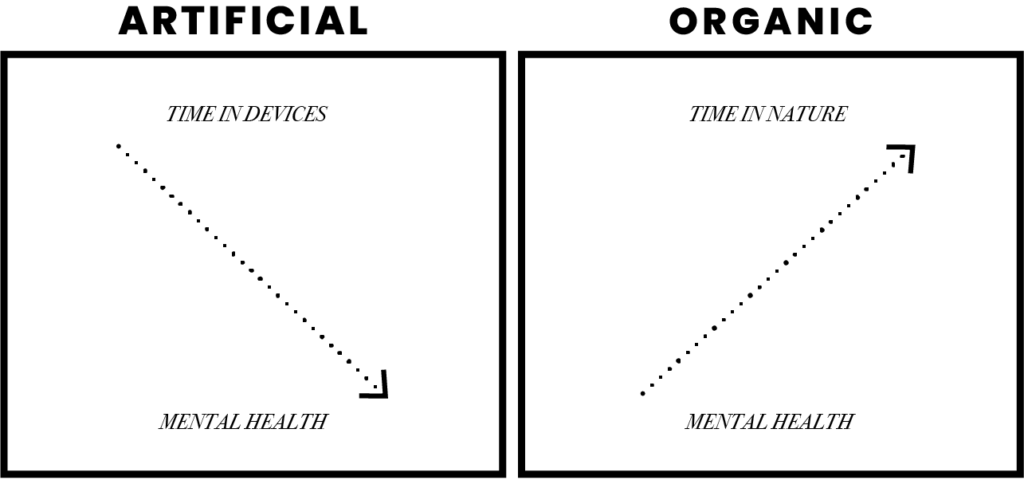
Again, this is why I keep coming back to hope. Maybe an increase in AI will remind us we were not meant to be tethered to a screen 24/7, doing busy work. Maybe we will let artificial intelligence do the artificial tasks and we will return to human tasks.
Embodied Connection
The care of the Earth is our most ancient and most worthy, and after all our most pleasing responsibility. To cherish what remains of it and to foster its renewal is our only hope.
Wendell Berry
A few years ago, I built a raised garden bed. Stewarding a garden in Silicon Valley is not always ideal. First, the plants don’t get the ideal amount of sun-exposure because of the amount of trees and houses. Second, California has monster-rats. These rats are bigger than mountain lions and destroy everything. I looked one in the eyes and still have nightmares about it. They steal our tomatoes and our strawberries and lettuce. I’ve tried traps. I’ve built a cage around the garden. It’s a never-ending war and I am losing.
But, but. To eat a ripe tomato you have planted and watered and fed is a beautiful experience. It’s the opposite of eating something artificial. To push a seed in the dirt, or prune a leaf, or observe slow growth day after day. This connection is something sacred.
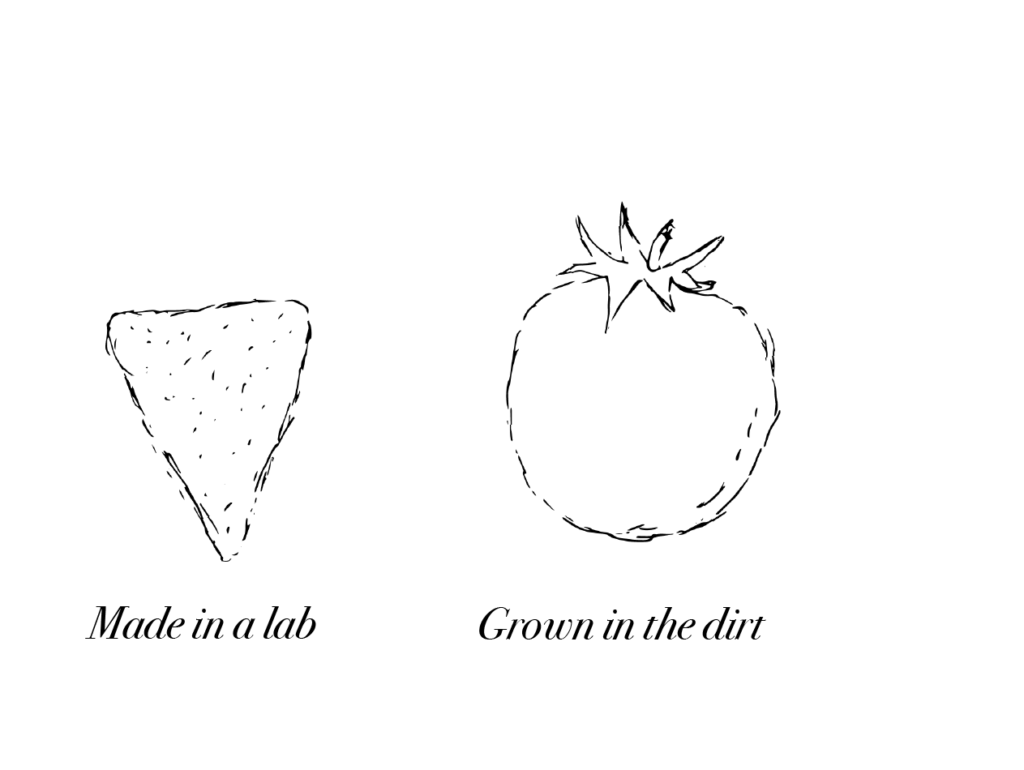
We can’t all move from the suburbs and start a farm, nor should we. But if you’ll allow me to be bold for a second—it would benefit our world if we all increased our connection to our food.
- Taking an annual visit to a local, organic farm. Seeing their processes, meeting the farmers.
- Going to a place where you can see what it’s like for chickens to be caged vs. pasture-fed.
- Observing a factory-farm ranch, where cows are not given space to roam.
- Going fishing—cleaning and eating your catch.
For most of history, humans were much closer to the earth that sustained them. Sun and rain were not just pleasures or frustrations on a morning commute—they were related to harvest and drought.
Part of the power of this connection is we not only come from this earth. But to the earth we will return.
To Dust We Will Return…
The fertility cycle is a cycle entirely of living creatures passing again and again through birth, growth, maturity, death, and decay.
Wendell Berry
In a future week, we will discuss the need for humans to embrace limitations, but for now, we remember being organic, non-artificial beings means we do not live forever.
Along with a daily cycle, there is a cycle of life and death. We come from dirt and to dirt, we will return.
This can be depressing, or it can be another way to remember what it means to be human. Our time on earth is short. I don’t know about you, but I don’t want to spend my time with immersed in a screen or focused on quarterly earnings, or living through social media influencers, or consuming TikTok videos like a bag of Doritos.
I want to spend my short time living as fully as possible.
I want to catch as many sunsets as I can.
I want to bite into my own ripe tomatoes.
I want to listen to crickets, not just highways.
I want jump into cold waterfalls and get my breath taken away.
I want to play with my kids at the beach.
So, in the age of AI and continued rise of technology…
May we reject the need to be constantly connected or endlessly entertained.
May we embrace our organic-ness and connect to the earth around us.

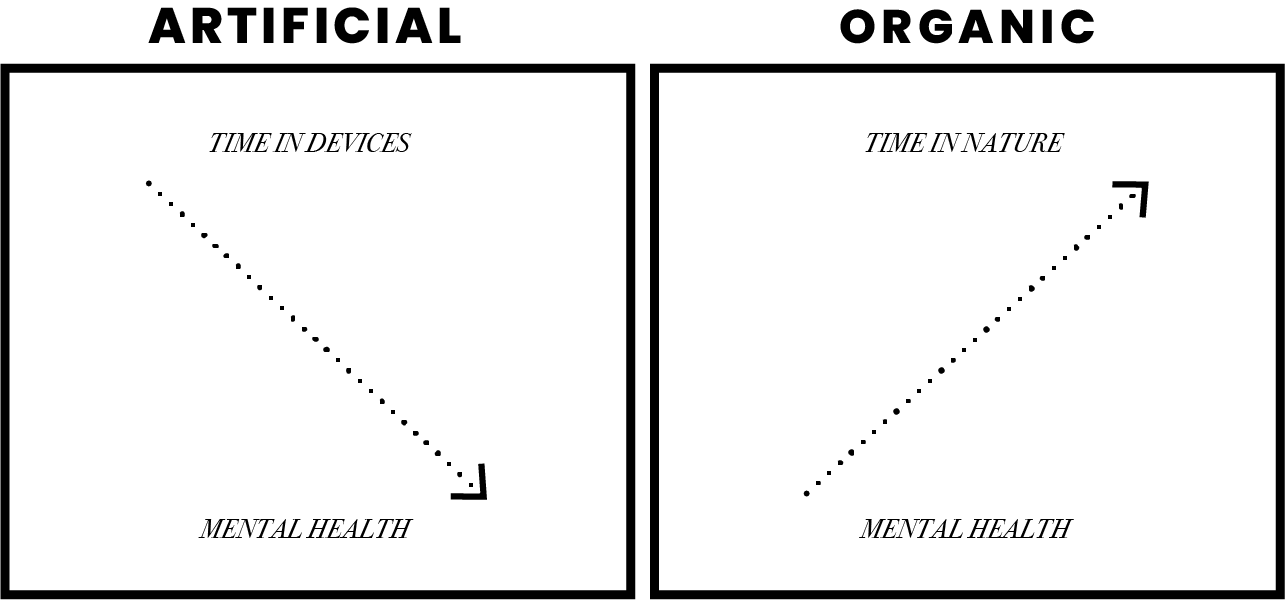
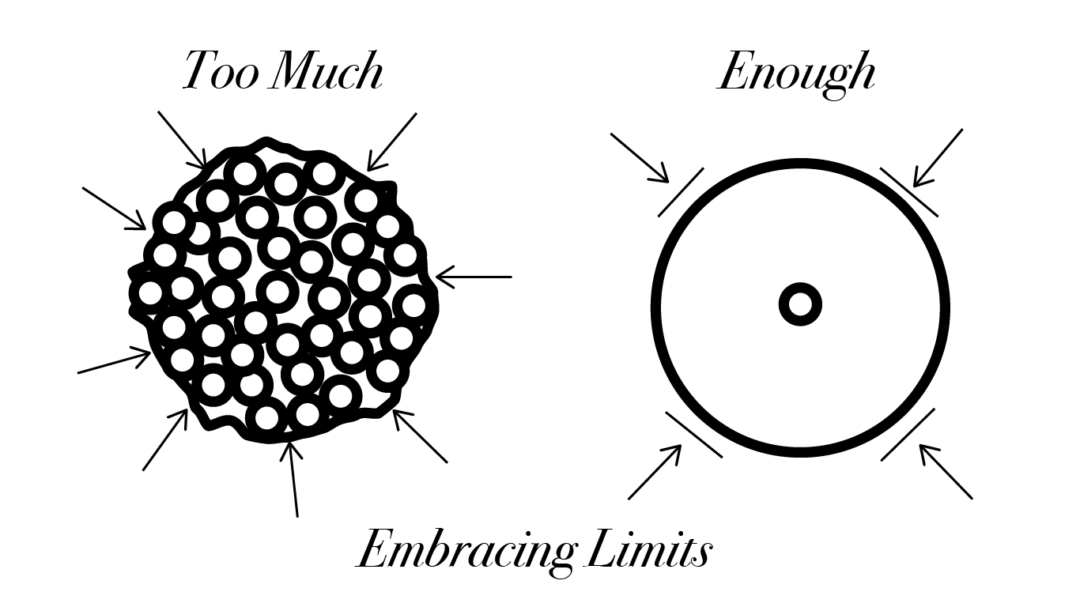
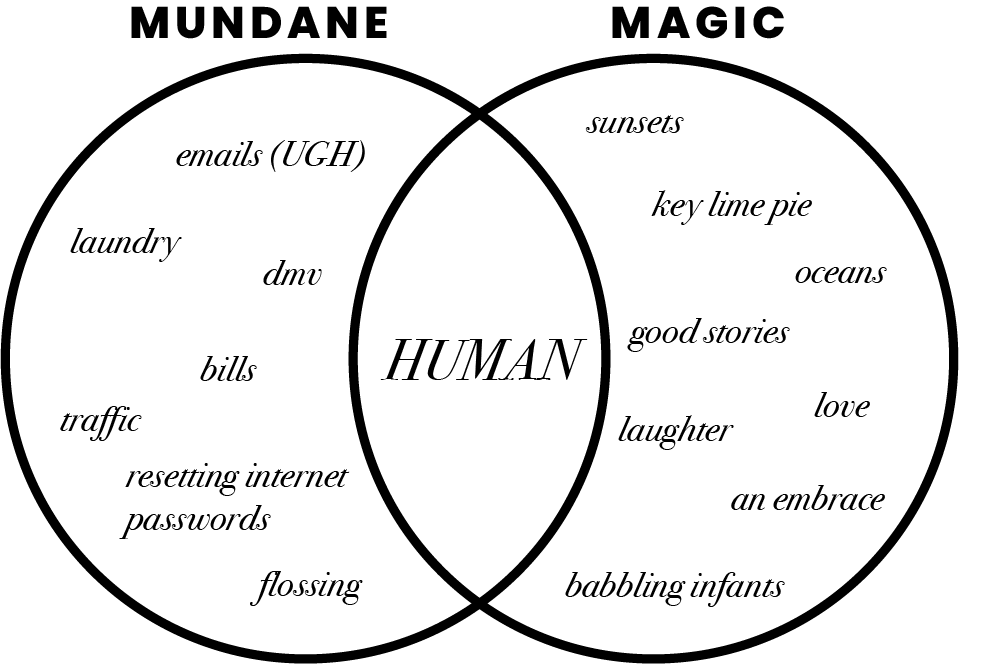
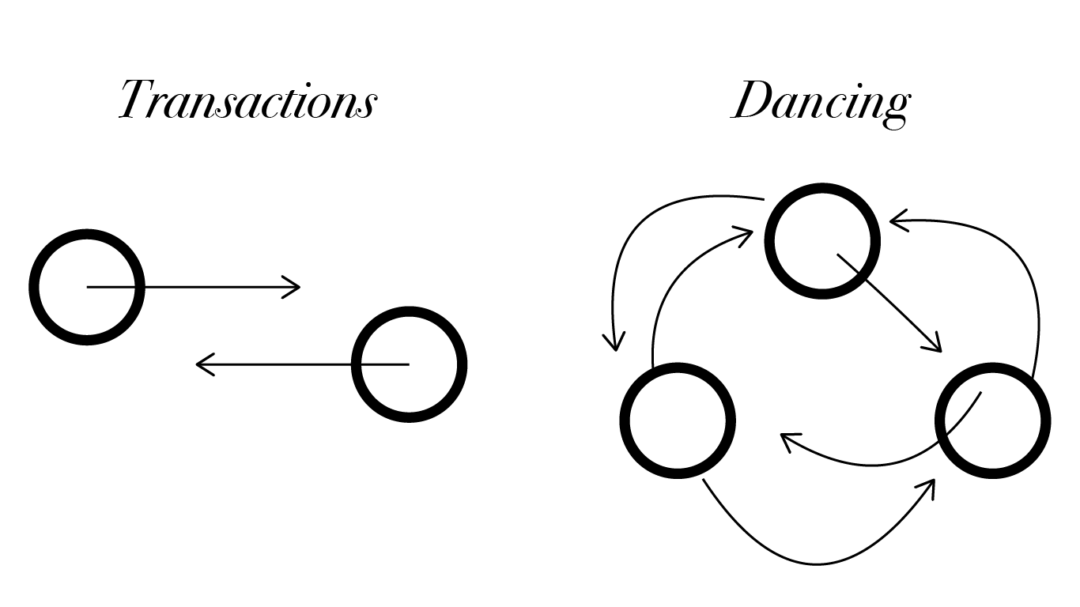

1 Comment
[…] we talked about last week, humans are organic beings—body parts made of flesh and blood and calcium-bones. But is that all […]